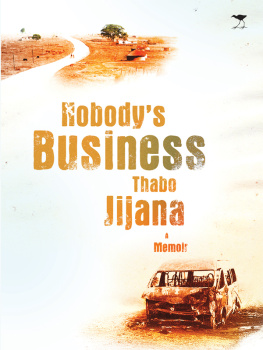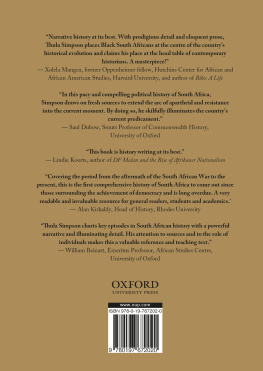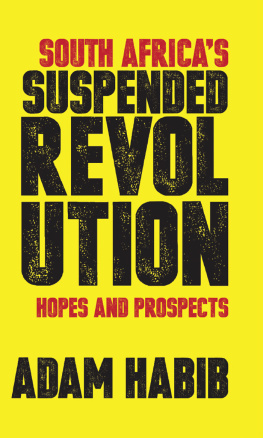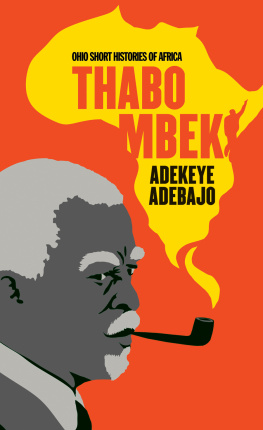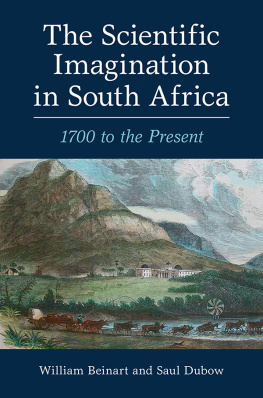All rights reserved.
The tragedy is not that things are broken. The tragedy is that they are not mended again.
One
A NYONE WHO HAS EVER EXPERIENCED a personal tragedy carries with them a vivid image of that moment just prior to their misfortune when everything seemed just right that calm, unsuspecting moment before the storm swept in. Perhaps they were cradling a cup of tea at home, engrossed in their favourite soapie when the phone rang; or had gone to wake their child for breakfast only to discover that the bed had not been slept in
In my case, it was my winter school break in July 2003, and I had come to spend it with the family of my fathers first cousin, my auntie Nolwandle, in the sleepy town of Peddie in the former Ciskei.
Each morning, the road outside aunties township house swelled with the daily exodus of commuters men in overalls and shiny boots with a pleased look in their eyes, women hurrying behind with tight doeks on their heads and handbags over their shoulders. Dabawo Nolwandle, the eldest daughter of my grandfathers only brother, was one of these women.
Each morning I helped aunties lastborn Monde load her wares onto a rickety taxicab at the doorstep, and waved as the car carried her away to her vendors stand in town. Back in the house our breakfast would be waiting for us, a plate of amagwinya , a piece of fried fish and a cup of black coffee. This was lavish fare for a boy of fifteen brought up on a frugal breakfast of sugared oatmeal or buttered bread with juice, and I intended to crow to my siblings about waking up to fish every day when I returned home. In the evenings, Monde and I would greet her when her taxi pulled up at the gate and help offload her merchandise: a metal bowl the size of a basin with bags of uncooked fish, bundles of fruit, and occasionally also bags of groceries.
I had last seen my sister and younger brother in late June, at the beginning of the holidays. How happy dabawo Nolwandle had been to see us when my father drove us to her house from our village, the last of a group of villages to the south, known as eMazizini. As I stood at her gate, a little sad to see my siblings go, they smiled and waved goodbye, their hands poking out of the passenger door of our fathers taxi van.
After a couple of weeks I was getting used to living in town, as I liked to boast to myself then. I had an incurable desire to be helpful, and felt proud that I had already proved useful around aunties house. I had painted the inside of a brick flat and cut down to waist height the overgrown milkweed hedge that enclosed the courtyard.
Monde suffered from epileptic fits. Too much time in the sun always knocked him flat on the ground, motionless as a defeated boxer. So I spent much of my time doing what would have been his tasks, and then sitting with him in the shade, chatting about this or that. We didnt know each other well I didnt know myself well but if dabawo Nolwandle had reason to be grateful for my presence, it was for the company I provided to Monde, who was a year or two older than me. Before I came along, while everyone else was at work or school, Monde spent most of his days with his elder sister and grandmother Magatyeni, who had to keep a strict eye that he didnt stay out in the sun too long. I had taken this load off their shoulders.
There were other livelier characters in this family that I had come to admire. Uncle Vuyani was a construction worker who lived with his family in eJamani, another of Peddies townships, but came to visit us now and then, tipsy and full of witty stories in which the joke was often on himself. Mlungisi, the eldest of aunties five children, was a municipal worker whose entire music collection amounted to a single Lionel Richie cassette. He played it nonstop after work in the late afternoons while reading Soccer Laduma or the Daily Sun . His generosity seemed boundless, as with many bachelor relatives. In the afternoon he would bring home a bag of oranges or a packet of ginger biscuits, earning him great favour among the children. In a way, Mlungisi was the man of the house, as auntie was divorced and took care of her mother, whom I called makhulu Magatyeni. But bhut Langa, who was less than a decade older than me, was the cousin I had grown fondest of.
Although aunties family was eleven in all, her RDP house was tiny a single room partitioned into a kitchen, lounge and two bedrooms by means of a long curtain, a wardrobe and a wall unit, respectively. So Langa slept in the house of a neighbour for whom he was housesitting, and I slept there with him.
I took a real liking to Langa. In his company I began to really look at myself now and pay attention to my own individual identity. This wasnt my first holiday with relatives, but living among aunties family gave me a clearer sense of myself as a person. I realised now, with something close to pride, that as plain as I was, I enjoyed my solitude and was delighted to be working with my hands. Back in my fathers household I lived among many adults who were used to doing things for themselves.
At night I would sit and listen as bhut Langa talked and smoked cigarettes, sharing war stories about his romantic conquests in the local tavern, all of which fascinated me in the way the doings of adults can impress a teenager.
Once he turned his focus onto me. I was a shy person and a reluctant talker, and being the focus of attention always made me nervous, even when something I said drew a smile from the girl I had a crush on. So I squirmed when Langa asked me if I had a girlfriend. No, I lied, even though my friend Jomo and I were seeing two girls from the same home.
Did I know the neighbours girl? Wasnt she about my age?
Yes. Probably.
It was left unsaid that I was expected to prove myself soon.
My father worked at the taxi rank in town, and auntie would tell me each evening about her conversations with him, and pass on any messages for me. Each morning I would give her my replies, telling him I was well, and sending greetings to my mother, brother and sister. Then she would leave in her saloon taxi, the preferred size of car for township taxis because they took only five commuters, whereas my fathers van took twelve to fifteen and wouldnt leave until it was full, which annoyed short-distance commuters.
One Thursday after auntie had left for work, I decided I would go and see my father.
Aunties township, Peddie Extension, was a tightly packed cluster of multi-coloured bungalows on the side of a low hill west of the town. I set off down the same gently sloping road that the workers followed each morning, passing the field where learner drivers were taught, then the police station, to reach Main Street. It was midday when I reached the taxi rank, and with the taxi business being rather slow on a Thursday, I found my father easily.
It was an unseasonably hot winter, hence our need to stay in the shade, and I wanted to ask my father for money to buy myself some sandals. I found him a quiet, peaceful man of forty-six standing with two colleagues beside one of the taxi vans in his usual uniform, a golf-shirt and faded blue jeans, without a jersey or jacket.

